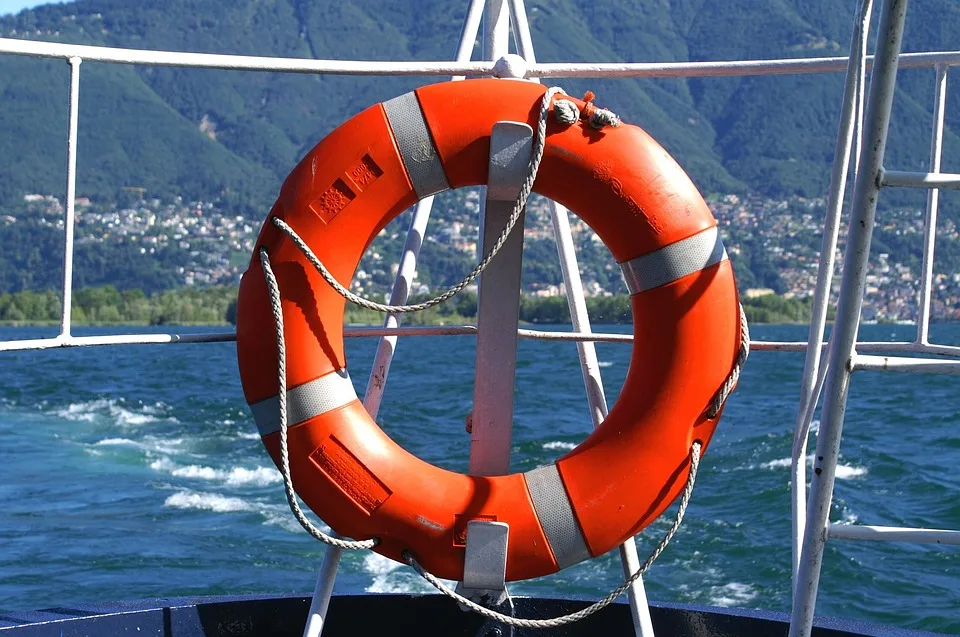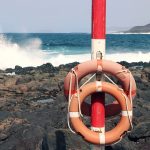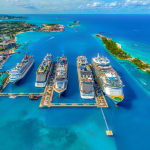The position of Ship Security Officer (SSO) is assigned by the ship’s captain and the company, and is essential for creating a thorough Ship Security Plan (SSP) and implementing necessary security protocols on board. The SSO falls under the jurisdiction of the International Ship and Port Facility.
Despite there being various advanced systems, including a ship security reporting system and a ship security alert system, in place to enhance maritime security, the contribution of the ship’s crew to ensure and maintain a failproof ship security plan should not be underestimated. All the measures involved in a ship’s security play an essential role in the safety of any shipping company that fares into international waters.
The primary duties of a ship security offer are to maintain the ship security plan and implement the existing security measures while also working side by side with the port facility security officer and the company security officer.
The ISPS code dictates that every ship is required to have a designated ship security officer, who wholly excepts all the responsibilities regarding ship security and ship security-related troubles.

The Primary Responsibilities of a Ship Security Officer
The main duties of every ship security officer (SSO) include the following:
- Ensure that all the proper security steps are adhered to by conducting security inspections regularly
- Maintaining and implementing the ship security plan
- Altering the ship security plan and adding new security measures if it is necessary
- Aid in the ship security assessment
- Increase vigilance and security awareness on the ship
- Thoroughly train the crew to maintain a high ship security level
- Guide all members of the crew by teaching them the methods to enhance maritime security
- Report any and all security incidents and ship security-related troubles to both the company and the ship’s master
- Taking view and recommendation notes of the port facility officer and the company security officer into account when setting amendments for the official ship security plan
- Considering all security measures regarding the engine room operations, cargo handling, ship security communication equipment, the ship’s stores, etc.
- Aid in the duties of the company security officer
- Work with port authorities and shipboard personnel to execute any ship operations with the utmost security
- Ensure all the ship security equipment is tested, properly operated, maintained, and calibrated, and the ship’s security surveillance equipment is up to standard
Although the main duties remain the same, many other duties of the ship security office may very well increase, decrease, and change based on the specific situation the ship is in.
As the number of piracy attacks has increased over time, the importance of overall maritime security has as well, resulting in a substantial demand for positions relating to maritime security. There are many companies who offer specialized maritime security services to maintain a high level of both onboard and port security. It is worth noting that the majority of ship security-related problems and ship incidents can easily be avoided by putting a sound security plan in place.
What is the ISPS Code?
The ISPS Code, or the International Ship and Port Facility Security Code, is a complete set of security measures intended to enhance and improve the security measure on every ship and at every port facility. The ISPS Code was established in response to the high number of perceived threats to ports and ships following the devastating 9/11 attacks.
The ISPS Code consists of a mandatory section and a recommended section, which is applied through XI-2 Special measures to enhance maritime security.
The ISPS Code dictates that ship and port facility security is an activity related to risk management and that a diligent risk assessment must be executed to determine which security measures are relevant to each ship.
The Codes’ purpose is to serve as a standardized international framework used to evaluate and mitigate risk factors.

What is the Role of the ISPS Code in the Ship Security Plan?
Both ship and port facility security are considered part of the risk management strategy, and the most efficient way to approach risk management is to eliminate the threat.
However, because removing the source of the threat cannot be guaranteed, reducing the risk by implementing security measures related to vulnerabilities is the best course of action.
Governments are responsible for assessing threats and evaluating any risk of unlawful acts so that they can determine which security measures are the best fit for the ship.
The ISPS Code is a concrete and standard framework for risk management and permits the valuable evaluation and exchange of all information between companies, Contracting Governments, ships, and port facilities.
Every port facility and ship faces differing threats, and, therefore, their methods of meeting the ISPS Code requirements are determined and approved by the Contracting Government or Administration.
The Contracting Government must determine security guidance at the appropriate level in order for a port facility or a shop to communicate threats and initiate suitable response actions.
The level of security serves as a link between the port facility and the ship because it sets in motion the response reaction of appropriate security measures for both the port facility and the ship.
The ISPS Code offers various security measures and methods of reducing the vulnerability of the ship and port facility as threats increase.
The port facility security officer, along with the ship security officer, has to determine which security measures they need to enhance to counter any threat by decreasing their vulnerability.
What does the Ship Security Assessment Involve?
The ship security assessment (SSA) plays a vital role in the process of establishing the ship security plan and putting sound safety and security measures in place.
As it is such an essential and integral part of the process, the company security officer must make sure that the ship security assessment is executed by individuals with relevant skills to be able to evaluate the ship’s security in accordance with the ISPS Code. The ship company has to document, review, accept, and retain the ship security assessment.
A recognized security organization may perform the ship security assessment, and the process includes an on-scene security survey along with the following:
- Identify existing security measures, shop operations, and onboard procedures.
- Identify and evaluate the primary ship operations that need to be protected.
- Identify potential threats to the primary ship operations and determine the likelihood of them occurring to prioritize certain security measures.
- Identify weak points, including the role of the human factor in the procedures, policies, and infrastructure.
The company security officer must ensure that a ship security assessment is executed for every ship in the fleet of a company. Although the company security officer need not perform all the duties relating to the ship security assessment, they are still responsible for ensuring it is performed appropriately.
The company security officer needs to take advantage of any information about potential threats for the ports and port facilities where ships will call or where passengers may disembark or embark and the protective measures they implement.
The company security officer should also meet with the appropriate personnel either on the ship or at the port facilities, if possible, to go over the necessity of the security assessment. They must also follow the guidance the Contracting Governments offer.
The ship security officer needs to address the following either onboard or in the ship:
- The integrity of the structure
- The physical security of the ship
- Protective systems regarding personnel
- Policies on procedure
- Assess the ship’s telecommunication systems, which include networks and computer systems
- Asses any other areas used for observation that will pose a risk to the property, personnel, or ship operations if damaged
Anyone who is involved in the ship security assessment must draw on professional assistance regarding:
- Information on current threats to security
- Detection and recognition of dangerous devices or substances and weapons
- Non-discriminatory recognition of behavioral patterns and characteristics of those who might threaten security
- Methods used to evade security measures
- Techniques used to bring about a security incident
- Consequences of any explosives on the ship’s equipment, structure, security measures, port/ship interface business practices, physical security, emergency response, contingency planning, telecommunication systems (networks and computer systems), port and ship operations, and marine engineering
The company security officer must acquire and record all information needed to execute a thorough assessment, including:
- The ship’s layout
- Areas on the ship that ought to have restricted access
- The locations of all potential or actually ship access points
- Tidal changes that may impact the security or vulnerability of the ship
- Stowage arrangements and cargo spaces
- The locations of important maintenance equipment and the ship’s store
- Locations of stored unoccupied baggage
- Stand-by and emergency equipment available for the maintenance of important services
- The number of existing security duties and training requirements and the number of personnel
- Any existing safety and security equipment for the personnel and passengers of the ship
- Evacuation routes, escape routes, and assembly stations that need to be maintained for order evacuation of the ship
- Agreements with any private security companies that provide waterside and ship security
- All existing security measures in place, including identification systems, control procedures, monitoring and surveillance equipment, alarms, access control, personnel communication and identification documents, and inspections
The ship security assessment should investigate every access point, which includes open weather decks, and gauge its potential to serve as an aid for anyone who wishes to breach the ship’s security. Such points of access include any point that people legitimately have access to, as well as points that offer unauthorized access.
The assessment should also take the relevance of existing security measures into account, including all procedures and operations under emergency and routine conditions, and it should determine security guidance, such as:
- Response actions to emergency conditions, such as fires
- Restricted areas
- The supervision level of passengers, personnel, vendors, visitors, dock workers, repair technicians, etc.
- The effectiveness and frequency of security patrols
- The access control systems, such as identification systems
- The security procedures and security communication systems
- The barriers, lighting, and security doors
- All surveillance equipment, if applicable
The ship security assessment must take any activities, persons, operations, and services that are essential to protect into account, including:
- The personnel of the ship
- Visitors, passengers, vendors, personnel at the port facility, repair technicians, etc.
- The ship’s stores
- The capacity to execute safe emergency responses and navigation
- All cargo, especially hazardous or dangerous substances
- The ship’s surveillance equipment and communication equipment, if applicable
All potential threats should be considered in the assessment, including:
- Seizure or hijacking of the ship or passengers
- Destruction of or damage to the port facility or ship
- Tampering with important equipment, cargo, or the stores and systems of the ship
- Unauthorized use or access, such as stowaways
- The smuggling of equipment or weapons
- Usage of the ship to carry persons who are likely to cause a security incident
- Usage of the ship as a weapon or a method of causing destruction or damage
- Attacks at sea
- Attacks while anchored or at berth
The assessment must consider all potential vulnerabilities, including:
- Safety and security measures conflicts
- Security assignments and ship duties conflicts
- The number of personnel and watch-keeping duties with regard to alertness, fatigue, and performance
- Any possible identification security training deficiencies
- All security equipment, which includes communication systems
The company security officer and the ship security officer must always consider the effect the ship’s security measures have on the personnel. Therefore, special consideration must be granted to the comfort, convenience, and privacy of the personnel when security measures are developed.
Once the ship security assessment is completed, a report containing a summary of the conduction of the assessment will be prepared. The report will also note all vulnerabilities found and which measures will counter such weaknesses,
On-scene Security Survey
The on-scene security survey is an important aspect of the ship security assessment and includes the examination and evaluation of all protective measures, operations, and procedures regarding:
- The performance of all the duties relating to ship security
- Keeping watch over restricted areas so that only authorized persons can access them
- Exercising control over the access to the ship, which includes identification systems
- Monitoring the area surrounding the ship as well as the deck areas
- Supervising the handling of the ship’s cargo and the delivery of the stores
- Exercising control over the embarkation process
- Ensuring the availability of the ship security information, communication, and equipment
In Conclusion
The above-mentioned matters are only the tip of the iceberg when it comes to ship security and how the ship security officer and the company security offices work to ensure a safe journey.
The security of any ship is of uttermost importance for any shipping company and any international ship. Beyond the multitude of safety measures and advanced systems put in place to ensure a safe voyage, the ship security officer stands at the center of it all, as the supervision of the proper application and implementation of any necessary measures falls on their shoulders.






